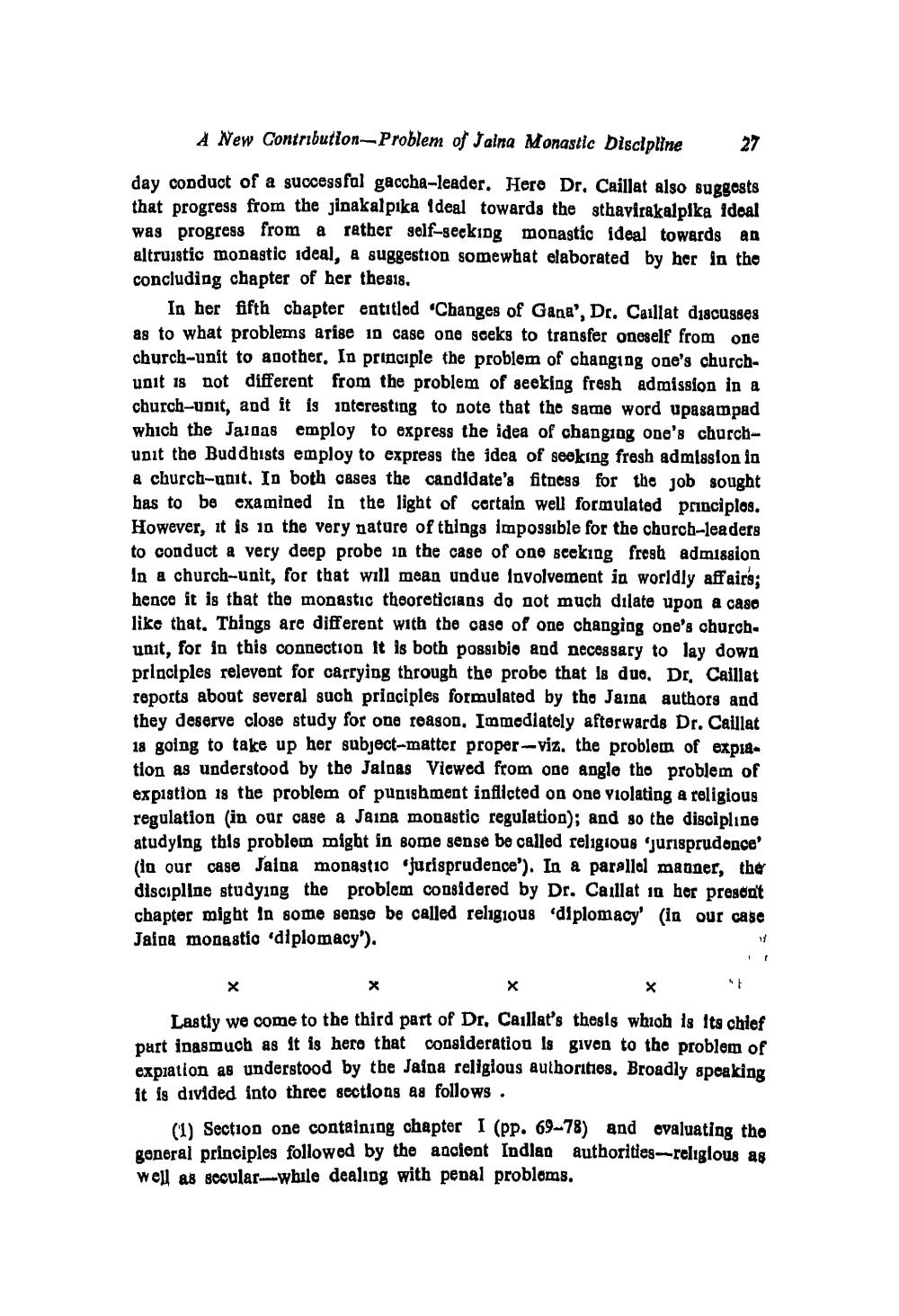________________
A New Contribution-Problem of Jaina Monastic Discipline
day conduct of a successful gaccha-leader. Here Dr. Caillat also suggests that progress from the jinakal pika ideal towards the sthavirakalpika ideal was progress from a rather self-seeking monastic ideal towards an altruistic monastic ideal, a suggestion somewhat elaborated by her in the concluding chapter of her thesis.
27
In her fifth chapter entitled "Changes of Gana', Dr. Caillat discusses as to what problems arise in case one seeks to transfer oneself from one church-unit to another. In principle the problem of changing one's churchunit is not different from the problem of seeking fresh admission in a church-unit, and it is interesting to note that the same word upasampad which the Jainas employ to express the idea of changing one's churchunit the Buddhists employ to express the idea of seeking fresh admission in a church-unit. In both cases the candidate's fitness for the job sought has to be examined in the light of certain well formulated principles. However, it is in the very nature of things impossible for the church-leaders to conduct a very deep probe in the case of one seeking fresh admission In a church-unit, for that will mean undue involvement in worldly affairs; hence it is that the monastic theoreticians do not much dilate upon a case like that. Things are different with the case of one changing one's churchunit, for in this connection It is both possibie and necessary to lay down principles relevent for carrying through the probe that is due. Dr. Caillat reports about several such principles formulated by the Jaina authors and they deserve close study for one reason. Immediately afterwards Dr. Caillat 18 going to take up her subject-matter proper-viz. the problem of expiation as understood by the Jalnas Viewed from one angle the problem of expiation is the problem of punishment inflicted on one violating a religious regulation (in our case a Jaina monastic regulation); and so the discipline atudying this problem might in some sense be called religious jurisprudence' (in our case Jaina monastic jurisprudence'). In a parallel manner, the discipline studying the problem considered by Dr. Caillat in her present chapter might in some sense be called religious 'diplomacy' (in our case Jaina monastic 'diplomacy').
18
"t
X
X
X
X
Lastly we come to the third part of Dr. Caillat's thesis which is its chief part inasmuch as it is here that consideration is given to the problem of expiation as understood by the Jaina religious authorities. Broadly speaking it is divided into three sections as follows.
(1) Section one containing chapter I (pp. 69-78) and evaluating the general principles followed by the ancient Indlan authorities-religious as well as secular-while dealing with penal problems.




